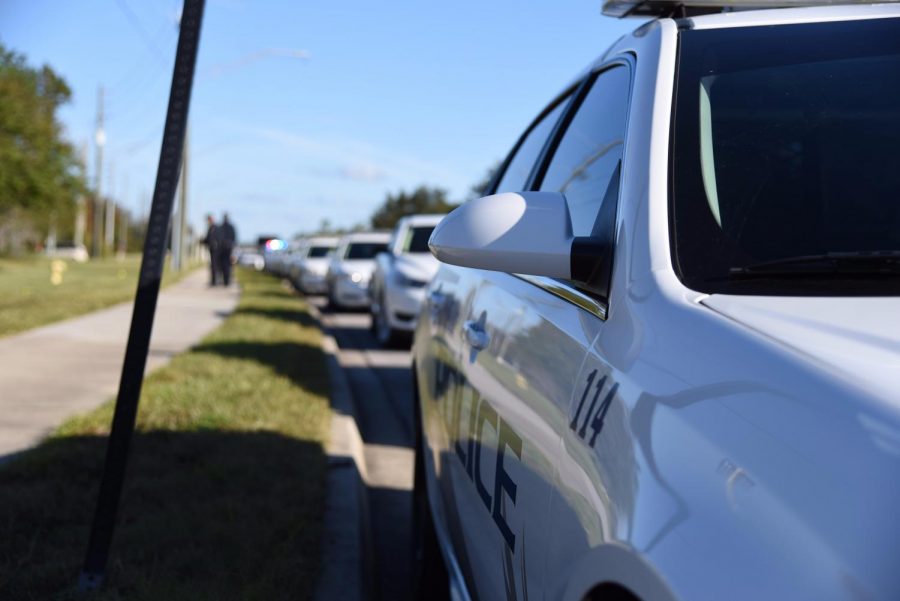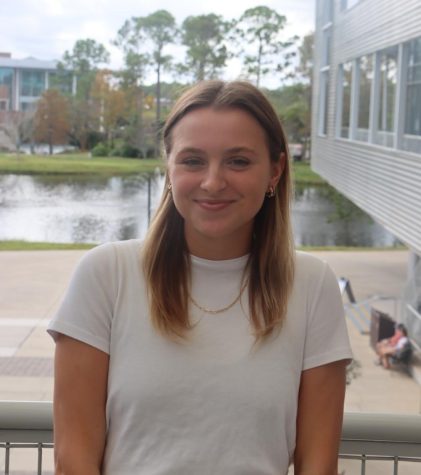The University of North Florida hosted a panel event last week in the Student Union to discuss sexual violence and the Red Zone.
The Red Zone is a time of statistically heightened instances of sexual assault that happen during the first part of the fall semester across college campuses. The Red Zone panel event aimed to open conversation about sexual assaults, trauma, consent and other topics to raise awareness and education.
The panel consisted of eight UNF faculty and students who offered their knowledge and experience with certain topics, beginning with what exactly consent is and what it should look like.
Amy Howell is an Advance Practice Registered Nurse specializing in Women’s Health and engages in prevention efforts with various campus entities. Howell described a useful acronym to help explain what consent should look like in action. “Consent MOVES”:
Mutual
Ongoing
Verbal
Enthusiastic
Sober
Without all of those, Howell explained that no one can give consent, and no one can evaluate if their partner is giving consent.
Another aspect of consent is setting boundaries for yourself and your partner and having conversations about what is and isn’t okay. Howell explained that a big part of consent is learning how to accept a ‘no’ and that consent cannot be assumed even in the context of a relationship.
“Consent is revocable at any time,” Howell said. “No is okay up to any point.”
Another panel member, Dr. Carlene Taylor, is a licensed mental health counselor and director of OspreyPERCH, a counseling service on campus. She explained the importance of acknowledging and talking about past traumas or experiences in order to heal from them.
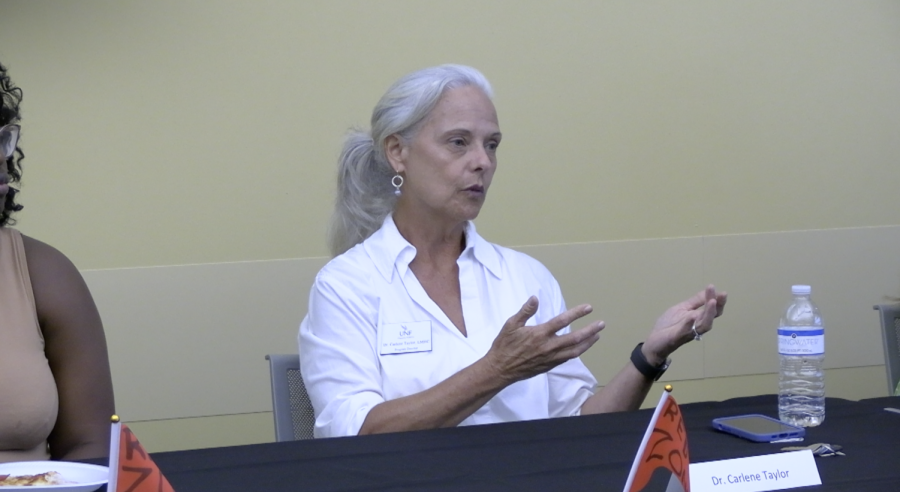
“What we bring out into our consciousness and… into our world is less likely to have power over us,” Dr. Taylor said.
Sexual assault comes in many different forms and can happen to anyone. But how can students report a situation as delicate as sexual assault and harassment? UNF Police Department (UPD) Deputy Chief Adam Brown is the Associate Director of Police & Public Safety and JSO officer who explained how students can go about reporting a situation of sexual abuse.
A campus security authority (CSA) is designated by the university but is defined by The Cleary Act, meaning they’re required to track and publish certain crimes for new students to be aware of. Deputy Brown also explained that under Marsy’s Law, even when a crime is reported to law enforcement, a victim can remain confidential if they wish to be.
“We truly believe in ‘start by believing,’ and if you come to us with a situation like that, you’re going to be treated with respect,” Deputy Brown said.
UNF offers many different services for students to turn to for help dealing with sexual assaults and other instances of sexual violence. Panelist Whitney Washington is the victim’s advocate coordinator within UNF’s Women’s Center, which offers 24-hour victim crisis interventions to survivors of a crime.
Washington listed a few non-confidential resources offered to students, including the UPD, JSO, the Title IX Office, The Dean of Students Office, The Office of Accountability and Resolutions and the Student Ombuds.
Among the assistance-provided resources, Deputy Brown mentioned a self-defense class offered on campus, RAD: Rape Aggression Defense. Taught by UPD officer Karen Livingston, the program teaches defensive techniques against aggressors.
If students are seeking help and wish to remain confidential, a few resources at UNF include the Women’s Center, the Counseling Center, the Student Health Center and the Victims Advocacy Program.
The Counseling Center is open for walk-ins and has an on-call number available 24/7. The center is staffed with psychologists, counselors and social workers, all trained to provide assistance.
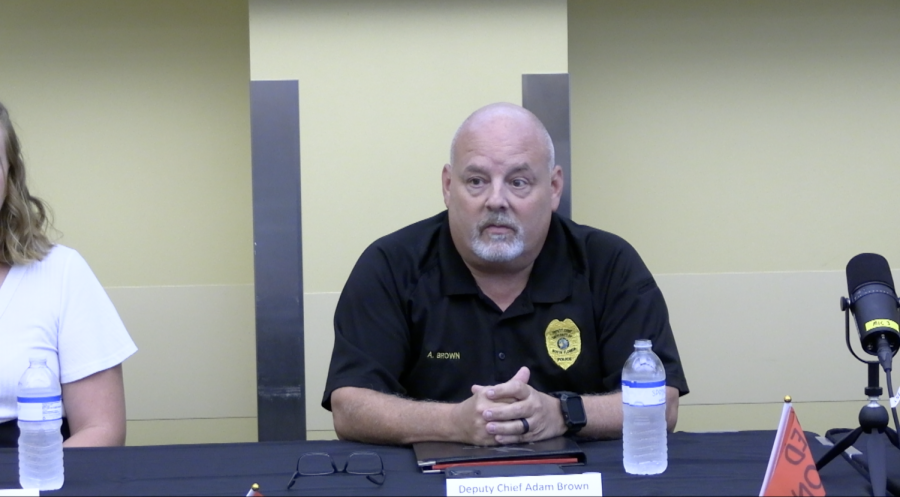
Osprey PERCH, as Dr. Taylor describes, is an embedded model that has teams throughout different parts of UNF, like athletics, resident’s life and student health services, so students can speak to a PERCH counselor in many areas on campus.
The difference between the two is that non-confidential resources are considered responsible employees, meaning once they are aware of a certain situation, including sexual harassment, they must report it to the university, which is then reported to the Title IX office to investigate.
Panel member, Tom Van Schoor of Student Ombuds, said that when a victim reports a situation of sexual assault, they’re in the driver’s seat.
“They are the ones that determine what’s going to happen and what’s not going to happen,” Schoor said.
Whether a situation needs to be reported from the CSA perspective, the decision is still up to the victim. It’s common for students to be afraid to report an assault for fear of unintended repercussions, but empowering victims to report situations is crucial to making steps toward resolutions.
Along with UNF resources, students are also a part of the two-way street regarding reporting and preventing sexual harassment on campus.
Sexual assaults can happen anywhere and to anyone, and Howell encourages students to “police your peers” at parties and events and to speak up when something doesn’t look or feel right.
Mark Harris is the coordinator of the mentoring program for the Office of Diversity and Inclusion and tells students to be mindful of the party.
“When you notice something immediately is off… and yet you turn your head, that’s where the biggest issue is at,” Harris said.
As Howell explained, it’s better to be wrong than not intervene. Students should try to be aware of and help their peers who seem too intoxicated or not in the right mindset to ensure they’re safe.
A bystander intervention training workshop will be held on September 14 at the Women’s Center Lounge to help further educate students on how to speak up effectively or do something when a situation doesn’t seem right.
Panelist member and undergraduate student Emily Sullivan is a Senator in UNF’s Student Government (SG), and she explained that SG recently funded $10,000 worth of NightCaps, a tool designed to prevent drink spiking.
“It’s a scrunchie or a little keychain where you put it over your cup, and you put a straw through it or take it off,” Sullivan said.
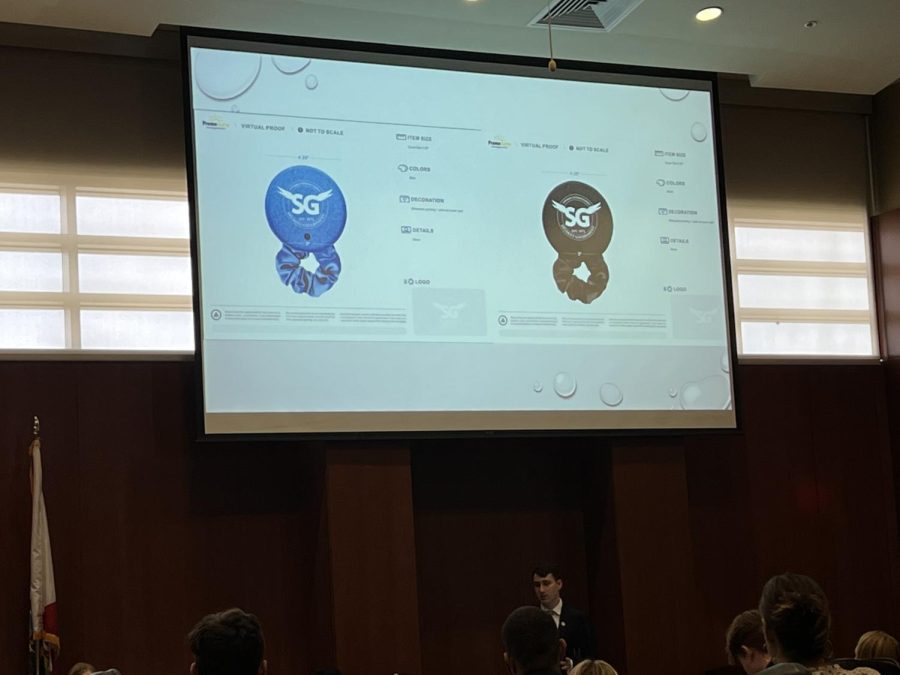
Among the crowd at the panel event were senior nursing students who, as a part of their community-based project, have been the starting piece of engaging and educating students on this topic.
Making more students aware of what sexual harassment can look like is a big part of preventing situations from escalating and potentially resulting in danger, but it takes effort from all parties.
Students involved with clubs, extracurriculars, or Greek life can partner with The Dean of Students or Student Advocacy to help spread these conversations across all parts of the UNF campus.
“The conversation should not stop,” Harris said. “It needs to keep going because there will be a new freshman next year and another one… so we just want to make sure that everyone are aware of what’s going on.”
Dr. Julie Baker-Townsend is a Nurse Practitioner at Student Health Services and is an Assistant Professor at the Brooks College of Health School of Nursing. She explained that although women are often victims, men are as well.
“We need to walk around with our eyes open and not just think that women are the target because many times it’s everyone,” Townsend said.
Being a victim of sexual violence or harassment is traumatic, and trauma looks different for everyone. Trauma can be psychological, physical or mental and can alter the way someone perceives reality and the world.
When asked what another word for trauma the panelists would use, many described it as a life-altering time or event that takes many shapes, including pain and grief. It can impact someone’s life in many ways, including relationships and behavior.
Dr. Carlene Taylor responded with the question, why are we looking for another word for trauma?
“It [trauma] happens when someone is experiencing something for which they think, feel, or perceive that they could die, and there’s a part of them that is at risk for death, whether it is a physical death, emotional death or psychological death,” she explained. “That’s trauma, and it’s prevalent in our society, and so I don’t want a different word trauma. I want people to recognize this is what it is, and I don’t want to sugarcoat it.”
To learn more about the Red Zone and how students can be a part of creating change, an interactive virtual event will be held on Zoom on September 8. It will engage with all participants and will provide a deeper understanding of UNF’s outlook on sexual violence prevention.
___
For more information or news tips, or if you see an error in this story or have any compliments or concerns, contact editor@unfspinnaker.com.










